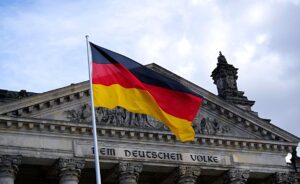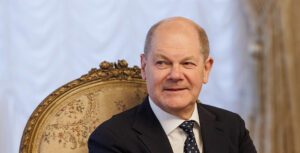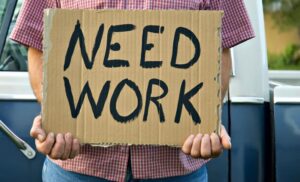
Polling stations have opened in Germany for the early Bundestag elections. They will be open until 18.00 on Sunday. A total of 29 political parties are running in the election.
Since 08:00 on Sunday, February 23, polling stations have opened throughout Germany for voting in the early Bundestag elections. They will be open until 18.00.
There are about 59.2 million voters in the country. Of these, 24.9 million (42%) are over 60 years old. About 2.3 million voters (3.9%) are young people who have reached the age of 18 and are eligible to vote in federal elections for the first time.
About 200,000 more German citizens registered to vote abroad. Their total number is estimated at about 3-4 million. The reason for the low turnout among them is bureaucratic difficulties and the need to send a ballot to their home country by mail.
A total of 29 political parties are running in the elections. In all 16 federal states, 10 of them will run: The Social Democratic Party of Germany (SPD), the Union 90/Greens, the Free Democratic Party (FDP), the Alternative for Germany (AfD), the Left Party, the Sarah Wagenknecht Union (SZV), the Free Voters, Volt, the Marxist-Leninist Party of Germany, and the Alliance Germany. The Christian Democratic Union (CDU) is running in 15 states, except Bavaria. Its sister party, the Christian Social Union (CSU), is running there.
Pre-election polls promised the greatest support for the conservative CDU/CSU bloc. It was followed by the far-right AfD. Then came the center-left SPD and the left-liberal Greens. The rating of the Left Party, the left-wing populist FDP and the liberal FDP hovered around the 5% required to enter the Bundestag. According to sociologists, about 20% of voters were undecided about whom to vote for and whether to go to the polls at all.
The Experts Club and Active Group have previously released a video analysis of the most important elections in the world in 2025 https://youtu.be/u1NMbFCCRx0?si=-rc6YHH7EA1pnr7w
Source: https://amp.dw.com/ru/v-germanii-nacalos-golosovanie-na-vyborah-v-bundestag/a-71717875

The number of unemployed in Germany in January 2025 reached almost three million, which was a record for the last decade.
This is reported by DW with reference to the Federal Employment Agency.
According to official data, the unemployment rate in Germany increased by 0.4 points since December 2024 and reached 6.4%. This means that the number of unemployed in the country increased by almost 200 thousand more compared to the previous year and reached 2.993 million. The sharp rise in unemployment in January is typical, as many seasonal labor contracts end with the New Year and weather-dependent work, such as in construction, comes to a halt.
At the same time, German employers see the data released by the Federal Employment Agency as a worrying signal.
According to Rainer Dulger, president of the Confederation of German Employers’ Associations of Germany, “the economic and structural weakness of the German economy is hitting the labor market with all its might.”

On Monday, members of the Bundestag passed a vote of no confidence in the government of German Chancellor Olaf Scholz, Bavarian Radio reports.
“The chancellor put up a confidence vote in the Bundestag and lost it as planned. This means that the president will dissolve the parliament, and elections will be held in February,” the radio station notes.
394 MPs expressed no confidence in Scholz’s government, 207 supported the government, and 116 abstained.
Scholz himself had previously called for such a vote, as European media reported that it would allow him to hold early elections. Now, Scholz is expected to ask German President Frank-Walter Steinmeier to dissolve the Bundestag. If the parliament is dissolved, elections in Germany must be held within 60 days from the date of dissolution.
Earlier, Scholz, who heads the Social Democratic Party of Germany (SPD), agreed with opposition parties on plans to hold early elections on February 23, 2025.
In November, the ruling coalition in Germany collapsed due to disagreements over Scholz’s economic policy.
At the same time, German parties are already preparing for early elections. The SPD leadership has decided to re-nominate Scholz as a candidate for chancellor. This decision still has to be approved by the party congress on January 11, 2025, but German media noted that this is just a formality. So far, the CDU leader Friedrich Merz, German Vice Chancellor Robert Habeck from the Union 90/Greens party, and the head of the far-right Alternative for Germany (AfD) party Alice Weidel have also been considered candidates for the chancellorship.
Earlier, the Experts Club think tank released a video review of the most important elections in the world – https://youtu.be/73DB0GbJy4M?si=k5LDANC7lkpbK0Nh

Germany’s economy shows no signs of recovery: The country’s GDP will decline again in 2024, and stagnation is expected in 2025, according to a review by the Kiel Institute for the World Economy (IfW).
Experts expect Germany’s GDP to decline by 0.2% this year. The decline will be marked for the second year in a row – in 2023, the German economy shrank by 0.3%. In 2025, Germany’s GDP growth will be zero, analysts predict.
The autumn forecast predicted that the country’s GDP would decline by 0.1% in 2024 and grow by 0.5% in 2025.
The main reasons for the deterioration of the forecasts are the expected introduction of US tariffs and the deepening crisis in the German industry, IfW experts say.
“The crisis is largely a crisis of the manufacturing sector,” said Stefan Koots, head of the IfW’s economic forecasting department. – “It shows symptoms typical of the periods following major macro shocks.
“The German economy is struggling with a decline in competitiveness, which is reflected in the weakness of overall economic indicators, which hardly allow us to count on any upward impulses,” the expert added.
The growth rate of consumer prices in Germany will reach the European Central Bank’s (ECB) target of 2% only by the end of 2026, not 2025, as expected in the Institute’s previous forecast. The average inflation rate in 2024 and 2025 will be 2.2%, according to IfW.
Unemployment in Germany will be at 6% this year and 6.3% in 2025 and 2026, according to the IfW. This is worse than the fall forecast of 6.1% for 2025 and 5.9% for 2026.
Experts assume that Germany will be able to reduce the budget deficit from 2.6% of GDP in 2023 to 2.3% this year and 1.9% in 2025. In 2026, the budget deficit is projected at 2.1% of GDP. In the fall, IfW expected the budget deficit to be 1.7% in 2025 and 2026.
You can learn more about current trends in the global economy in the video analysis by Maksym Urakin and the Experts Cub think tank on the Experts Club YouTube channel: https://www.youtube.com/watch?v=grE5wjPaItI

FlixBus, the largest bus transportation operator in Europe, is launching three additional international routes from Ukraine to Germany ahead of the winter holidays.
According to the operator’s press service on Monday, the flights will be operated in the directions of Ivano-Frankivsk – Berlin, Chernihiv – Cologne, and Odesa – Bremen.
“FlixBus is launching new routes to Germany to help even more Ukrainians reunite with their families during the Christmas and winter holidays. It is estimated that up to 1.65 million Ukrainians live in Germany, for whom these routes create an opportunity to reach their loved ones in a convenient and comfortable way. For many, this is more than just a trip. FlixBus strives to make these meetings more accessible, especially at such an important time of the year,” the operator’s press service said.
The first flight on the route Odesa – Uman – Vinnytsia – Khmelnytskyi – Ternopil – Lviv – Berlin – Hamburg – Hamburg – Bremen is scheduled for December 10 from Odesa. Departures will take place on Tuesday, Wednesday and Saturday. In the opposite direction, the bus will run on Monday, Thursday and Saturday.
The flight Chernihiv – Kyiv – Zhytomyr – Rivne – Lviv – Berlin – Magdeburg – Hanover – Dortmund – Essen – Duisburg – Dusseldorf – Cologne Bonn Airport will be launched for the first time on December 16. Reportedly, it is another convenient option for traveling to Cologne, in particular to Cologne-Bonn Airport. The bus will depart on Monday, Wednesday, and Friday. In the opposite direction, the bus will depart on Wednesday, Friday and Sunday.
The route Ivano-Frankivsk – Lviv – Rzeszow – Kielce – Łódź – Poznan – Berlin will be operated twice a week: on Thursday and Sunday, and in the opposite direction – on Monday and Friday.
On November 1, FlixBus also launched a new route from Kyiv to Munich. The line allows passengers to easily transfer to flights to Italy, France, Croatia, and other European countries.
The company provides direct connections between 29 cities in Germany and 11 cities in Ukraine. FlixBus already has 28 direct bus routes between Ukraine and 8 EU countries. Nine flights connect Ukraine with European airports.

The German labor market faced significant challenges in 2024, reflecting the country’s overall economic difficulties. The seasonally adjusted unemployment rate rose to 6.1% in October, the highest since February 2021. The number of unemployed people reached 2.856 million, an increase of 27 thousand compared to the previous month.
Despite strong labor demand in a number of industries, opportunities for the unemployed to find work are recovering slowly. Industry is expected to continue to cut jobs, while demand for specialists in other sectors remains high.
In 2024, Germany introduced a new unemployment benefit, Bürgergeld, which replaced the former Arbeitslosengeld II. In 2024, the benefit amount was increased to € 563.
Thus, 2024 was a period of significant challenges in the labor market for Germany, driven by both internal economic factors and external challenges. The government and business will have to work together to find solutions to stabilize employment and support unemployed citizens.
Source: http://relocation.com.ua/riven-bezrobittia-v-nimechchyni-zbilshyvsia-do-6-1-u-zhovtni/